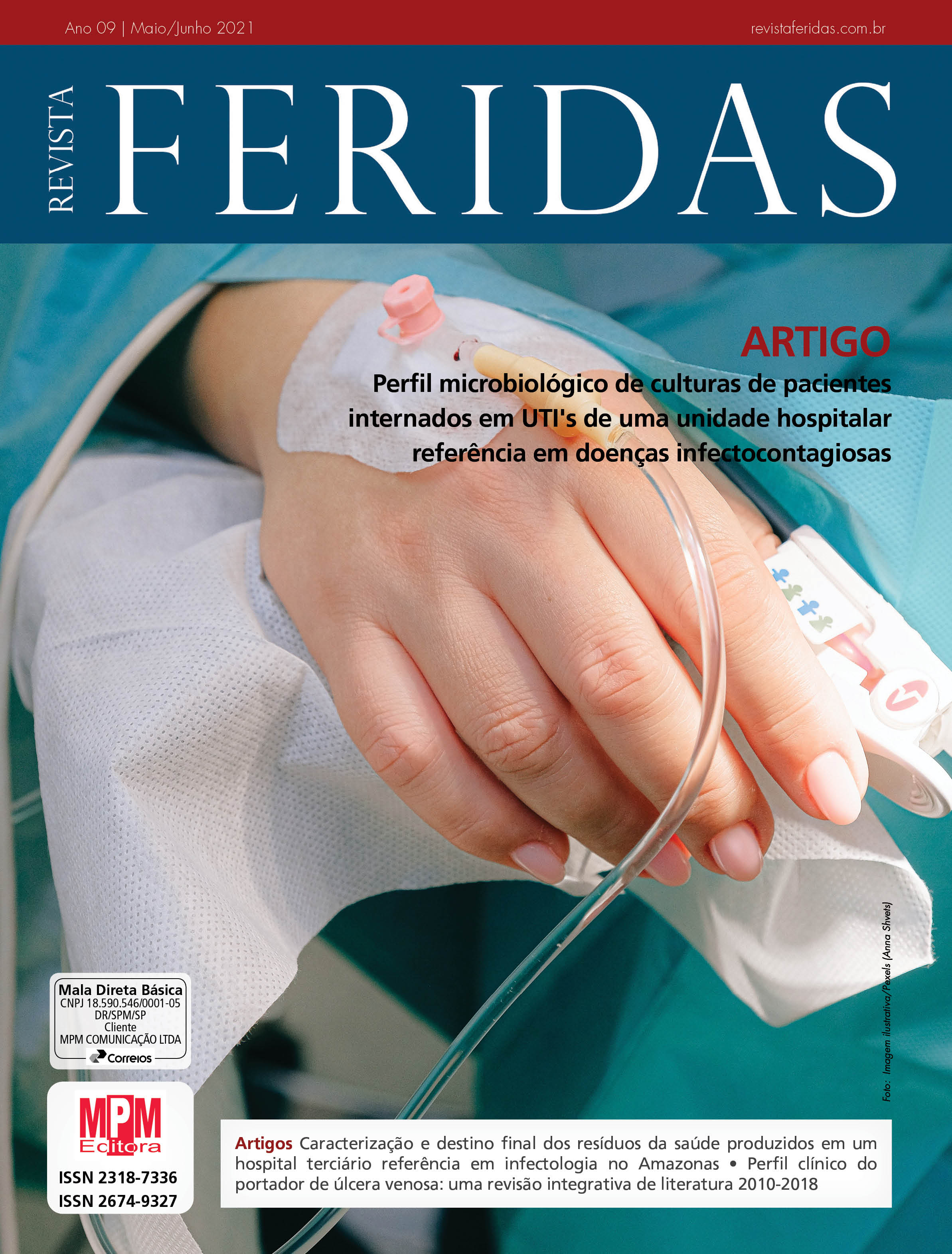Characterization and final destination of health waste produced in a tertiary hospital reference in infectology in Amazonas
DOI:
https://doi.org/10.36489/feridas.2021v9i48p1754-1759Keywords:
Characteristics of solid waste, biological accident, waste management, infectious diseasesAbstract
Introduction: Health residues are all those produced from human health care. Objective: To describe the characteristics of the final destination of health residues produced in a tertiary reference hospital in infectology in Amazonas. Methodology: a retrospective, descriptive study with a quantitative approach. Results: The hospital where the study took place produced, in a period of twelve months, 195,722 kg of waste, of which 61.3% were common waste, 37.8% waste classified as infectious and 0.8% chemical. Of the common waste, only 8.4% was used for recycling and the rest was sent to be incinerated or to the landfill. It is worth mentioning that the records show an increase in the production of waste in this institution of about 1.5% in relation to the previous year. Conclusion: It is suggested that there are administrative incentives for the implementation of internal programs that enable a better selection of these residues to facilitate the use for recycling.



